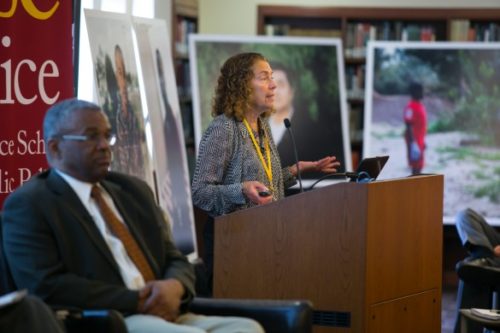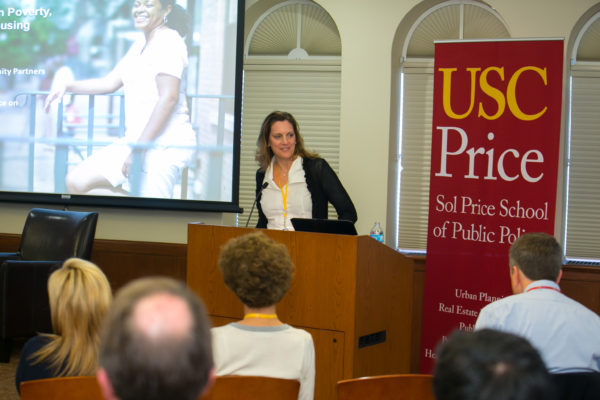Innovate to End Urban Poverty
March 27, 2014
50 years ago, President Lyndon B. Johnson declared “unconditional War on Poverty.” However, solutions to poverty in America have been elusive. The Innovating to End Urban Poverty symposium explores the context for poverty, policy history, and innovative solutions bridging families to opportunity. The symposium convenes a multi-disciplinary team of nationally-recognized scholars and practitioners to examine what is and is not working with an emphasis on the new policies, programs or practices needed to end urban poverty.
The main event of this symposium was a two-day conference held March 27th and 28th on the University of Southern California campus. Research papers, videos, and transcripts from the event are posted below in an effort to continue the conversation.
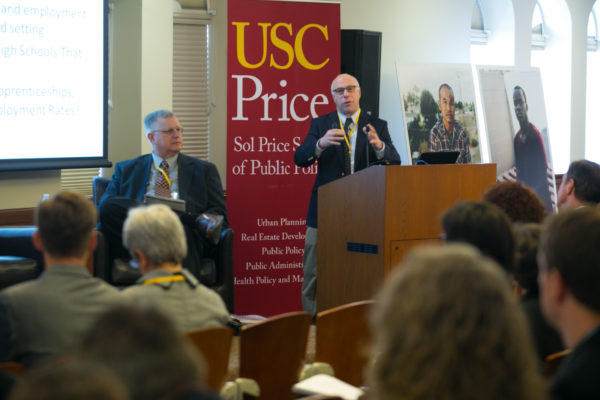
Income I – Human capital: Covers job training and primary education
Poverty is defined by a lack of income. A family’s prospects to improve their income status will depend upon their ability to be paid higher wages and income than they currently earn. For adults, this will often involve gaining skills or repurposing existing skills in order to be better positioned to capitalize on opportunities in the workplace. For children, higher income prospects are tied to schooling quality; better schools and instruction yield better preparation for the workforce and ultimately better earning opportunities.
This section examines policies in both arenas. One framing paper explores job training for adults, while the other focuses on educational innovations for children in the years before they enter post-secondary educational institutions.
Harry Holzer, Georgetown University (Author)
Heather Schwartz, RAND (Author)
Roy Nash, NeighborWorks® Waco (Discussant)
Estela Bensimon, University of Southern California (Moderator)
Click here to view full video
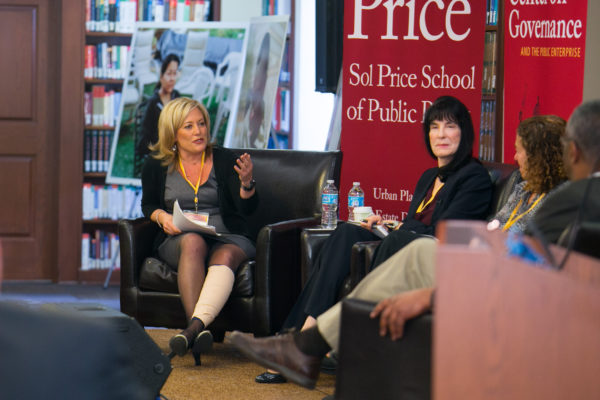
Income II – Other supports: Covers housing, food stamps, and health care
Families experiencing poverty face significant pressures in trying to attain basic necessities, such as food, housing, and health care. Without these basics, families will struggle to find stability and the prospects for achieving self-sufficiency are reduced. As a consequence, strategies for making these necessities available at less than market prices can be important for helping reduce stresses families face in managing every day life. Effective policies for providing these supports will be critical for helping families emerge from poverty.
In this section, we consider a set of policies that can effectively provide supports to increase access to basic necessities. The first framing paper explores programs designed to provide housing to families in poverty. The second framing paper focuses on food and health care.
Panelists:
Ed Olsen, University of Virginia (Author)
Barbara Wolfe, University of Madison-Wisconsin (Author)
Ronald Sims, King County, WA (Discussant)
Francine Kaufman, University of Southern California (Discussant)
Ali Solis, Enterprise Community Partners (Moderator)
Click here to view video.
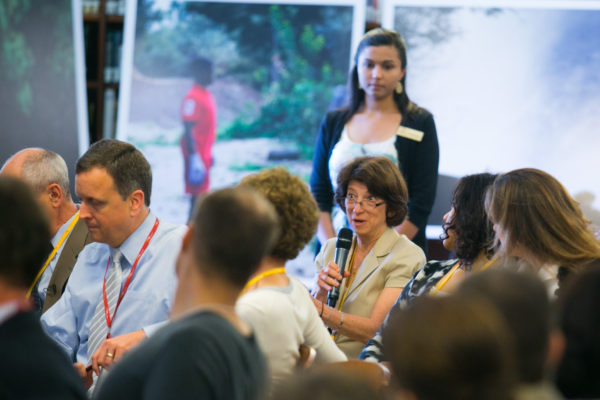
Household order and structure: Covers social fabric and executive functioning
The stresses of living in poverty are significant and can have lasting effects on individuals and families. Managing and ultimately overcoming them requires coping mechanisms and approaches to decision-making that mitigate the potentially adverse effects. Stress management can also be made easier if a robust local social and network exists in the community to support and bolster efforts to move beyond them and towards self-sufficiency.
This panel section seeks to highlight effective policies that enhance household order and structure. The first framing paper looks at coping and decision-making, in the context of family management, and points to innovative and promising ways to improve executive functioning. The second framing paper explores how networks in the community can help those in poverty find stability and considers potential approaches to building networks that can endure and generalize to the many varied communities of poverty.
LaDonna Pavetti, The Center on Budget and Policy Priorities (Author)
Manuel Pastor, University of Southern California (Author)
Martin Friedman, YWCA Passage Point (Discussant)
Zachary Hoover, LA Voice/PICO (Discussant)
Erika Poethig, Urban Institute (Moderator)
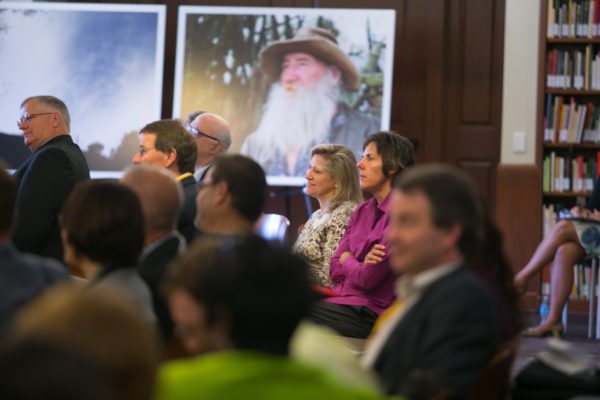
What role people: Covers those receiving assistance and those outside of the safety net
The challenges people in poverty face vary with their family circumstances. Many anti-poverty and associated support programs predominantly serve families featuring a single, usually female, parent with children. However, there are other poverty populations that potentially merit attention. These include the elderly, working age people who have not yet formed families, and emancipated youth who have exited the foster care system. The needed solutions for these different categories of people in poverty may vary in significant ways; a one-size-fits-all approach may, in fact, fit none.
This section looks at policies tailored to serve different segments of the poverty population. One major group is families with children, and highlighting programs that serve this population well and lead to self-sufficiency will contribute greatly to a reduction in the poverty rate. However, if poverty is to fall more broadly, approaches targeting other groups will be necessary. The second framing paper considers strategies for helping these “other” impoverished families achieve greater successes.
Panelists:
Cynthia Miller, MDRC (Author)
Greg Duncan, University of California, Irvine (Author)
Daphna Oyserman, University of Southern California (Discussant)
Kabira Stokes, Isidore Electronics Recycling (Discussant)
Sheryl Whitney, Whitney Jennings (Moderator)
Click here to view full video
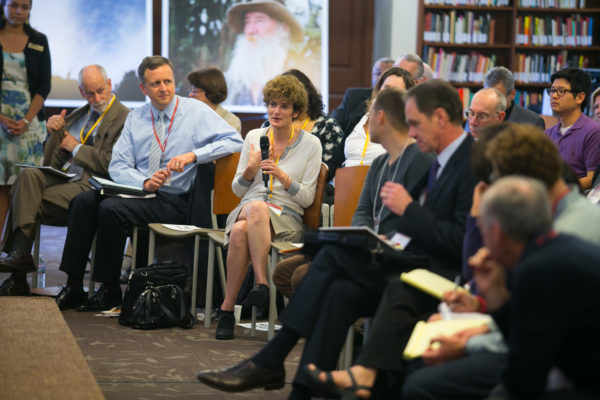
What role place: Covers racially concentrated areas of poverty, economic development, and public safety
The environment in which people live plays a central role in a person’s ability to thrive and gain self-sufficiency. Indeed, it is clear that both sides of the “nature/nurture” debate have strong arguments in their favor. From community development block grants to the Community Reinvestment Act, we have implemented a large number of programs designed to bolster places and make them places that offer a wide range of opportunities and are conducive to individual and family stability and self-sufficiency.
This section touches on these issues through the lens of leveraging place to enhance anti-poverty efforts. One framing paper focuses explicitly on promising place-based strategies for transforming high poverty neighborhoods into communities that give families a leg up on the ladder to the middle class. A second paper looks at the interaction of class with race, and identifies promising approaches to ensuring that race does not act as a major barrier to achieving self-sufficiency.
Panelists:
Margery Turner, Urban Institute (Author)
Alan Berube, Brookings (Author)
Angela Blanchard, Neighborhood Centers Inc. (Discussant)
Philip Tegeler, PRRAC (Discussant)
LaVonna Lewis, University of Southern California (Moderator)
Click here to view full video
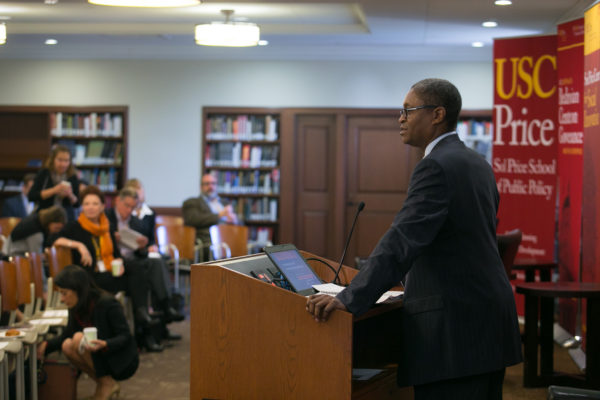
Rapporteur – Bringing it All Together
Sheldon Danziger, President, Russell Sage Foundation
Raphael Bostic, Professor & Director, USC Bedrosian Center on Governance
Click here to view video.
Foundation panel
Robert Greenstein, President, The Center on Budget and Policy Priorities (Discussant)
Terri Ludwig, President & CEO, Enterprise Community Partners (Discussant)
Patrick McCarthy, President & CEO, The Annie E. Casey Foundation (Discussant)
Raphael Bostic, Professor & Director, USC Bedrosian Center on Governance (Moderator)
Click here to view full video
Back to Events page


